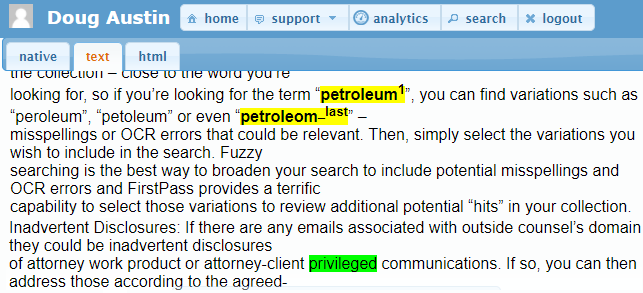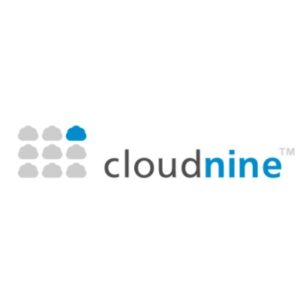For a More Complete and Accurate Review, Be Persistent: eDiscovery Best Practices
Manual document review can be prone to error. It’s easy to miss highly relevant documents or privileged documents if you fail to spot the terms that cause them to be identified as highly relevant documents or privileged. To help spot those terms, you have to be “persistent”. And, there’s a new review of CloudNine that you might want to check out!
By “persistent”, I’m talking about persistent highlighting, which is the topic for this week’s eDiscovery Tech Tip of the Week (see what I did there?). :o) Let’s face it: Failing to spot highly relevant, hot or privilege terms during document review can lead to important documents being missed or inadvertent disclosure of privileged information. Persistent highlighting enables these important terms to be always highlighted – regardless of search criteria – enabling them to be more easily spotted during review, which improves the quality of the review process.
When a review platform offers persistent highlighting, there is typically an area where you can identify the terms that you want to always be highlighted. Once you build that list, those terms will then always be highlighted anytime you review a document containing them, generally in a color different than the highlight color used for highlighting retrieved search terms.
Persistent highlighting can help improve the accuracy and completeness of your review and can help reduce potential inadvertent disclosures of privileged information. To see an example of how Persistent Highlighting is conducted using our CloudNine platform, click here (requires BrightTalk account, which is free).
———————————————
When evaluating an eDiscovery platform, it’s important to check out reviews of the platform so that you can gain from other perspectives on what those people like about a platform and where there are opportunities for improvement. As we discussed previously, sites like Capterra, G2 Crowd and Gartner Peer Insights enable you to learn about actual client experiences with the platform. And, earlier this month, we covered this free Buyer’s Guide, which reviews several eDiscovery solutions, including CloudNine, in a variety of product categories.
Now, here’s a new review of our CloudNine platform by industry thought leader Tom O’Connor. As you may know, Tom is a long time consultant in the industry and also does some work with CloudNine, as well as participating on our webcasts with me (which has been great fun!) and writing articles. Now, Tom has written a review of our platform that covers the full range of features, while also identifying some features he would like to see added. So, I guess I can’t retire yet? Thanks a lot, Tom! ;o) Anyway, here is a link to Tom’s review of CloudNine for your consideration.
So, what do you think? Do you use persistent highlighting in your review processes? Please share any comments you might have or if you’d like to know more about a particular topic.

Sponsor: This blog is sponsored by CloudNine, which is a data and legal discovery technology company with proven expertise in simplifying and automating the discovery of data for audits, investigations, and litigation. Used by legal and business customers worldwide including more than 50 of the top 250 Am Law firms and many of the world’s leading corporations, CloudNine’s eDiscovery automation software and services help customers gain insight and intelligence on electronic data.
Disclaimer: The views represented herein are exclusively the views of the author, and do not necessarily represent the views held by CloudNine. eDiscovery Daily is made available by CloudNine solely for educational purposes to provide general information about general eDiscovery principles and not to provide specific legal advice applicable to any particular circumstance. eDiscovery Daily should not be used as a substitute for competent legal advice from a lawyer you have retained and who has agreed to represent you.









